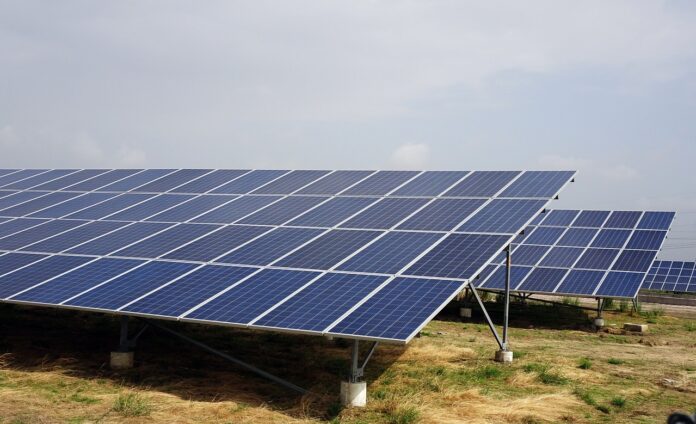Extreme weather conditions can damage solar panels, although most solar panels are designed to withstand a wide range of environmental conditions. The extent of the damage depends on the severity and type of extreme weather.
Let’s explore the impact of various weather phenomena on solar panels.
How Extreme Weather Can Affect Solar Panels
Here are some examples of how different weather conditions can affect solar panels:
Hailstorms
One of the most intimidating weather events for panels is a hailstorm. Those little balls of ice can pack quite a punch when they hit solar panels. Larger hailstones, in particular, pose a significant threat. They can impact the surface of the panels, leading to physical damage such as cracks or even shattered glass.
However, there’s a silver lining. Many panels undergo rigorous testing and are rated to withstand hail of a certain size and velocity. So, choosing panels with higher durability ratings is crucial if you live in an area prone to hailstorms.
High Winds
Strong winds can be another formidable adversary for solar panels, especially if they are not securely mounted. Proper installation and anchoring are paramount to prevent wind-related damage.
Fortunately, most solar panel systems are designed to endure typical wind speeds in their respective regions, but it’s always wise to consult with a professional installer to ensure your setup can handle local wind conditions.
Snow and Ice
Snow and ice accumulation on solar panels can impede their performance by obstructing sunlight. In some cases, heavy snow loads may even lead to structural damage. However, panels are designed with features to mitigate these issues.
Many panels have a tilt or smooth surface to encourage snow to slide off. Additionally, they can handle typical snow loads, but if you live in a snowy area, it’s still essential to keep an eye on your panels and clear them when necessary.
Extreme Heat

While we often think about cold weather affecting panels, extreme heat can also affect efficiency. High temperatures can reduce panels’ electrical output, potentially leading to long-term performance degradation.
Nevertheless, solar panels are designed to operate in a wide range of temperatures, and most are well-equipped to handle the occasional heatwave.
Lightning
Lightning strikes are another concern for solar panel installations. They can damage not only the panels themselves but also other components like inverters and electrical wiring. Consider installing surge protection devices to safeguard your system during electrical storms to mitigate this risk.
The Bottom Line
To minimize the risk of damage from extreme weather, it’s crucial to have panels professionally installed, adhere to local building codes and regulations, and consider factors like wind load, snow load, and hail resistance when choosing solar panel products. Regular maintenance and inspection of your solar panel system can also help identify and address potential issues before they lead to significant damage or performance degradation.


